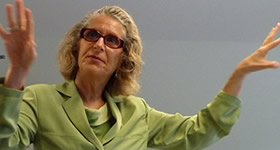I’ve collected quotations from novels and serious literature since I was in high school. I have handwritten notes, old typewriter notes, little books of quotations, computer lists, etc. Quotations about leadership and death and love and war and and …
One of these days, I’m going to write a whole series of blogs using song lyrics and quotes from novels, etc. Hmmm…. As I look back through my blogs, I guess I’ve already started doing that.
Here’s what the protagonist says at the end of William Kent Krueger’s novel, Ordinary Grace:
“I’m a teacher of history…and what I know from my studies and from my life is that there is no such thing as a true event. We know dates and times and locations and participants but accounts of what happened depend upon the perspective from which the event is viewed.
“I’m aware that [my brother] and my father recall things I don’t and what we remember together we often remember differently. I’m sure that each of us has memories that for reasons of our own we don’t share. Some things we prefer remain lost in the shadows of our past.”
First, that quote makes me think of donors and their experiences with organizations. Each donor experiences your organization differently – from her own vantage point, with his own personal lens. Each donor comes to your organization because of different events in his life, with a different perspective because of events in her life.
Each donor describes your organization differently, based on her experience and the accumulation of events in his life. Each donor experiences life differently because of race/ethnicity, gender and generation, sexual orientation and gender identity, socioeconomic staff, faith and physical ability.
The stories you tell. The stories I tell. The stories the others tell. The way you and I and them observe events and relate to icons and interpret experiences. The same events with different stories. The same results with different perceived impact. The experiences your donors share but interpret differently. The remembrances of times past and present, witnessed differently, explained differently, sometimes shared and sometimes not.
I remember the U.S.’s Vietnam War differently than my brother. Yet, we lived in the same home at that same time. With the same family members. And when I wrote my memory of that time – that war, that experience – it included my brother. I showed him what I’d written. And he corrected part of the part that was his, about him. I hadn’t remembered it that way. In some way, it didn’t matter what I remembered from Nam. Because the memory – whether accurate or not – has helped define my life, planned my path.
What about you? What about your donors? What about your staff colleagues and board members and other volunteers? What are their stories and memories – and yours? And beyond your NGO. What about your life?

